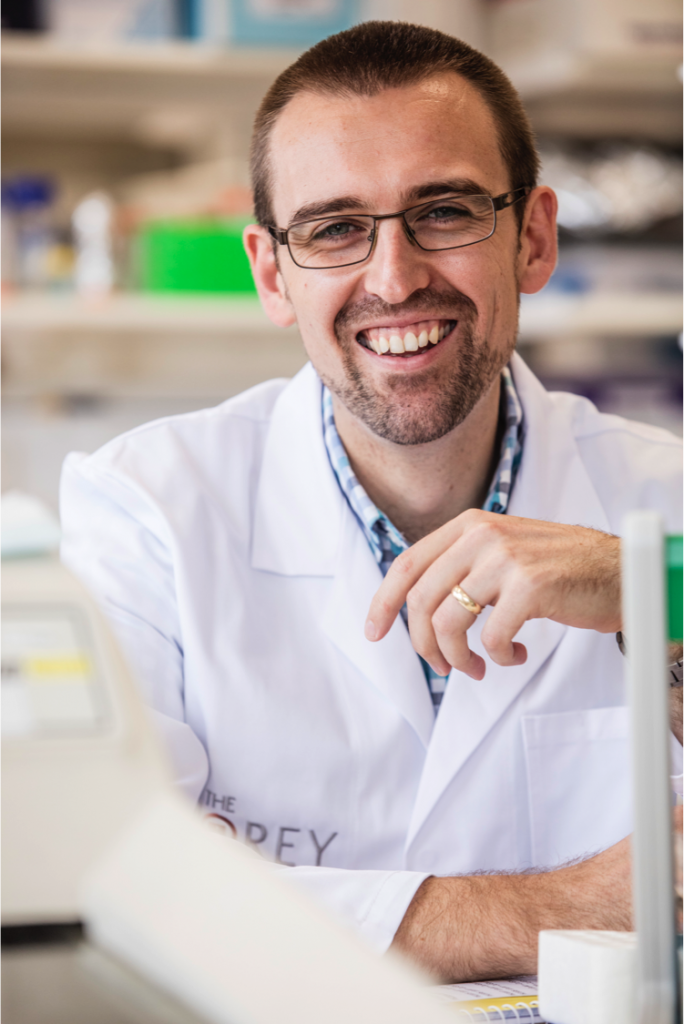OUR COLLEGE
Alumni Story
Scott Ayton
Class of 2003
August – 2018
Can you please tell us a little about what you do and what lead you towards becoming interested in science research?
After graduating from Doncaster Secondary College in 2003, I completed a Bachelor of Behavioural Neuroscience at Monash University, then I did a PhD in Neuroscience at the University of Melbourne. In 2011 I was employed at the Florey Institute of Neuroscience and Mental Health (University of Melbourne), where I now have a laboratory focused on neurodegenerative diseases like Alzheimer’s disease.
I was inspired to work in research because I had the realisation that science can change the world. I wanted a vocation where I was not just performing a function, but a career where I could make a lasting impact.
Was obtaining your PhD in neuroscience something you always aspired to do?
No. I knew I was interested in science, but when I graduated from school, I didn’t have a clear idea of what pathway I needed to take – and a PhD sounded intimidating at the time. I decided to follow my interest in neuroscience at University, and this is where my career pathway crystallised for me. In my second year at University, it became clear to me that I wanted to do a PhD, and that I had to work very hard to reach that goal.
Has there been a standout moment in your career?
The ultimate goal of every medical scientist is to develop new therapeutics. Therapies are tested in clinical trials, but it takes a huge amount of evidence before you get to this stage. I had been working on a therapy to treat Alzheimer’s disease for about 10 years, gathering evidence in the laboratory. Two years ago, the Government funding agency judged that the evidence was sufficiently compelling to test in a clinical trial. We are currently doing the clinical trial, which will report in a couple of years (hopefully a positive outcome!).
What are some of the challenges you have faced throughout your career?
You have to have thick skin to work in medical research – most of the feedback you get is negative. Early on in my career, I missed out on some government funding that I was hopeful that I would get. I was miserable and thought my career was at a crossroad. Then I realised that if I was going to remain in medical research, I needed to learn from this and work even harder. And I did. Fortunately, things worked out and I got the funding the following year. Failure can be the best teacher, although it teaches us hard lessons. Most of the time the challenge is to find a way to carry on, despite setbacks.
Where do you see science going in the future?
Science is growing. The future is all about BIG science -lots of people from different disciplines working together to generate huge amounts of data. This means communication and getting along with other people, especially people outside your discipline (i.e. people who are different from you), are increasingly vital skills for scientists. Future scientists will need to have a breadth of knowledge so that they can understand the perspectives of people working in different disciplines. Finally, there will be lots of opportunity for people who are comfortable analysing large data sets, and especially people who know how to do computer coding.
Who has been your biggest influence/ role model?
I work with lots of people that have had a major influence on me. But the person who remains my biggest role model is my wife. About 10 years ago she got diagnosed with Multiple Sclerosis. This has been a constant burden to her, and there have been times when she has been very sick. But, no matter how bad she is feeling, she manages to get up every day and go to work (also as a researcher). You won’t hear her complain or ask, ‘why me?’ – her resilience and quiet determination is an inspiration and constant reminder to me to persevere, no matter what challenges arise.
What advice would you give our Year 12 DSC students who are now deciding on what their future career pathways might look like?
I often say to my students that the most powerful knowledge you can possess is knowing your identity. What are the things you value? What are you good at and what are you bad at? What gives you energy? How do you fit into your community? What sets you apart? To answer these questions, you have to keep trying different things, and constantly reflect on your experiences. Don’t be afraid if you make mistakes or make wrong decisions – learn from them. Above all, you need to honest with yourself. When you understand yourself well, it is easier to make decisions that are right for you.

